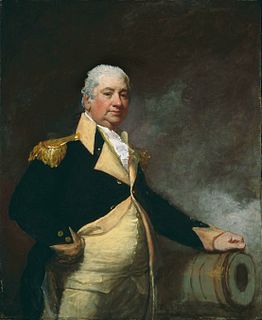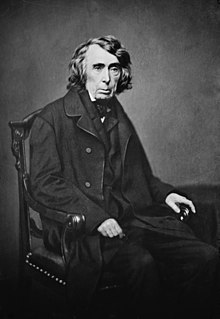A Quote by John Tyler
There will be found to exist at all times an imperious necessity for restraining all the functionaries of the Government within the range of their respective powers thereby preserving a just balance between the powers granted to this Government and those reserved to the States and to the people.
Related Quotes
I see,... and with the deepest affliction, the rapid strides with which the federal branch of our government is advancing towards the usurpation of all the rights reserved to the States, and the consolidation in itself of all powers, foreign and domestic; and that, too, by constructions which, if legitimate, leave no limits to their power... It is but too evident that the three ruling branches of [the Federal government] are in combination to strip their colleagues, the State authorities, of the powers reserved by them, and to exercise themselves all functions foreign and domestic.
The powers delegated by the proposed Constitution to the federal government are few and defined. Those which are to remain in the State governments are numerous and indefinite. The former will be exercised principally on external objects, as war, peace, negotiation and foreign commerce. ... The powers reserved to the several States will extend to all the objects which in the ordinary course of affairs, concern the lives and liberties, and properties of the people, and the internal order, improvement and prosperity of the State.
To hold that Congress has general police power would be to hold that it may accomplish objects not intrusted to the general government, and to defeat the operation of the 10th Amendment, declaring that 'the powers not delegated to the United States by the Constitution, nor prohibited by it to the states, are reserved to the states respectively, or to the people.
I, sir, have always conceived - I believe those who proposed the constitution conceived,and it is still more fully known, and more material to observe, those who ratified the constitution conceived, that this is not an indefinite government deriving its powers from the general terms prefixed to the specified powers - but, a limited government tied down to the specified powers, which explain and define the general terms.
Any government, that is its own judge of, and determines authoritatively for the people, what are its own powers over the people, is an absolute government of course. It has all the powers that it chooses to exercise. There is no other or at least no more accurate definition of a despotism than this.
The British government had not engaged in any serious actual oppression of the colonies before 1774, but it had claimed powers not granted by the governed, powers that made oppression possible, powers that it began to exercise in 1774 in response to colonial denial of them. The Revolution came about not to overthrow tyranny, but to prevent it.
If the federal government has the exclusive right to judge the extent of its own powers, warned the Kentucky and Virginia resolutions' authors (James Madison and Thomas Jefferson, respectively), it will continue to grow - regardless of elections, the separation of powers, and other much-touted limits on government power.






























